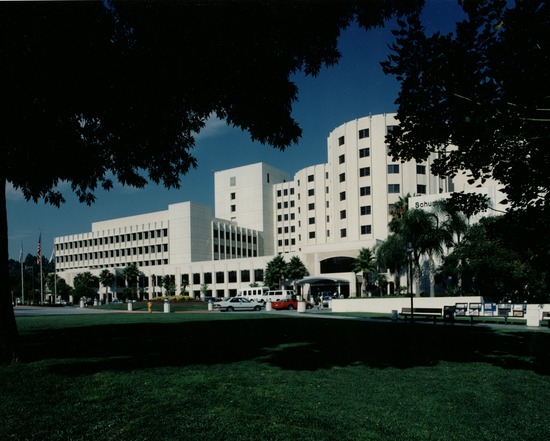How Ellen White Influenced the Adventist Health Message
Seventh-day Adventists are known for their emphasis on healthy living. And Ellen G. White was a significant influence in the development of this priority and practice among Adventists.
She taught that caring for our body, mind, and soul is every Christian’s responsibility to self, to society, and to God—our creator and sustainer.
In this post, we’ll cover how Ellen White’s writings became a significant contribution to the understanding and application of the Adventist health message. We’ll explore:
Ellen White’s role in developing the health message of the Adventist Church
Ellen White’s interest in health started early as she suffered a childhood injury that affected her quality of life. She also had experience caring for the sick in her family, especially her husband, James White.
But beyond her personal journey in healthy living, she also advocated for a healthier lifestyle among her fellow Christians. Her understanding of health principles expanded over time as she received inspiration from God, with major milestones being:
- December 1848 – Counsel to avoid tobacco, tea, and coffee
- February 1854 – Emphasis on personal hygiene and being mindful of appetite
- June 1863 – Detailed counsel on preventing disease, and daily habits of healthy living
- December 1865 – Counsel to start a health center to care for the sick and offer training on healthy living
She wrote these principles in pamphlets, as articles in the Adventist Church’s periodicals, and also shared them as personal letters or counsel to individuals or the collective church.
Then she put them all together in books like The Ministry of Healing. And much later, the custodians of her writings, the Ellen G. White Estate, compiled her writings on health into topical books like Counsels on Diet and Foods, Medical Ministry, etc.
These principles were a guiding light for Adventists in their application and practice of what became known as the Adventist Health Message.
But the journey of learning these teachings, or of making them a way of life, was not easy. It took serious adjustments and a shift of mindsets from what was considered “normal” at the time.
Here’s a glimpse of how it happened.
Early Adventists and the health message
 Once the Adventist Church was established in terms of its doctrines and organizational structure, Ellen White shifted her attention to the health of church members.
Once the Adventist Church was established in terms of its doctrines and organizational structure, Ellen White shifted her attention to the health of church members.
And for good reason.
By the early 1860s, many Adventist church leaders and workers were falling sick. Most of the illnesses were caused by poor personal hygiene, overwork, unhealthy living conditions, and other preventable causes.
In the 19th century, health practices that we consider so obvious today were unheard of or neglected.
So she started advocating for hygienic living, healthier diet, and using natural means to treat disease.
Ellen White’s counsel on healthy living
 Ellen White began by showing why taking care of our health is a way we can respond to God’s love. And it can also help us be more able to serve Him and grow in our faith.
Ellen White began by showing why taking care of our health is a way we can respond to God’s love. And it can also help us be more able to serve Him and grow in our faith.
Referencing 1 Corinthians 6:19-20 in the Bible, she showed that our spiritual growth and experience is influenced by the state of our physical wellbeing. Since the body is the “temple of the Holy Spirit,” it only makes sense to take good care of it as a continual act of worship (NKJV).1
She was also very clear that following these health principles was not a way for someone to earn salvation. And that a person’s maturity or spirituality was not to be judged by their current state of health.
In fact, though many people now call them the “laws of health,” they aren’t to be regarded as holy regulations or rigid rules.
Instead, they were to be viewed as an expression of our love and gratitude to God. We tend to our health as part of our willingness to follow what He’s revealed to be the best path for us because He loves us and wants the best for us.2
Also, Ellen White showed that our mental health is linked to our physical well being. A problem in physical health also affects the function of the mind. And a troubled emotional and mental state leads to poor physical health.
More on this can be found in her books Mind, Character and Personality Volumes 1 and 2.
With this understanding, the Christian’s watchword in the area of health was to promote and maintain life and good health.3
So what did that look like?
Here’s a summary of the health principles and practices she advocated for through her writings:
God is the source of health and healing
Ellen White was always quick to acknowledge that God is the giver of life, and only He can restore health.
That in all our efforts to maintain a healthy body, mind and soul, we are simply cooperating with God, the healer. She wrote:
“All life-giving power is from Him. When one recovers from disease, it is God who restores him.”4
It’s like the way even modern medicine doesn’t “heal” the body. Treatments and procedures aid the body in fighting disease and injury, but it’s still the body’s natural, existing systems that do the healing. For example, a doctor sets a bone after it breaks, but it’s the body’s healing processes that mend the bone.
Eating the most nutritious diet5
 Ellen White promoted a progressive shift from a mostly meat-based diet to a vegetarian diet. She wrote:
Ellen White promoted a progressive shift from a mostly meat-based diet to a vegetarian diet. She wrote:
“Grains, fruits, nuts, and vegetables constitute the diet chosen for us by our Creator. These foods, prepared in as simple and natural a manner as possible, are the most healthful and nourishing. They impart a strength, a power of endurance, and a vigor of intellect, that are not afforded by a more complex and stimulating diet.”6
Notice that she says the food should be prepared in “as simple and natural a manner as possible.” By this, she encouraged using whole foods instead of highly processed products.
She also covers many details of how to cook in the healthiest way, how to plan out our meals, the ideal frequency of eating those meals, avoiding too much sugar and saturated fat etc.
The details of all these practical tips on healthy diet are compiled in her book, Counsels on Diet and Foods.
Avoiding habits that have a damaging effect on the body and mind
She encouraged the people to completely abstain from harmful habits and substances, and to practice moderation even with things that were considered healthy.
She referred to this principle as Christian temperance.
She discouraged the use of tobacco, alcohol, and stimulants. And she also talked about subjects like overeating, overworking, reading fictitious and negatively stimulating publications etc.7
She even addressed some issues caused by the way people commonly dressed in the 19th century.8 Like women’s dresses that were too long and dragged on the ground, even sweeping up filth from the streets and taking it indoors. And not to mention corsets, which were so tight on women’s waists and abdomen that they restricted proper breathing and movement. The trends of the day were actually having a considerably negative effect on their health.9
A compilation of her writings on this principle is now found in the book Temperance.
Proper rest
Many early Adventists were zealous, hard workers. But this good trait often led them to overwork themselves. Many of them, like James White and J.N. Andrews, died young, partly because of fatigue and just pushing themselves too hard.
Ellen White often counseled them to take time to rest. She emphasized the importance of getting enough sleep, with the most beneficial sleep coming from an early bedtime.
For example, in one of her many letters to her coworkers, she said:
“I know from the testimonies given me from time to time for brain workers, that sleep is worth far more before than after midnight. Two hours’ good sleep before twelve o’clock is worth more than four hours after twelve o’clock.”10
Importance of physical exercise11
 Ellen White was vocal about the necessity of physical activity in maintaining health, and in the process of treating diseases.
Ellen White was vocal about the necessity of physical activity in maintaining health, and in the process of treating diseases.
A lot of the workers in the early Adventist Church were writers, editors, preachers, and scholars. And it was common for them to spend their days indoors, studying or working on publications.
This sedentary life, coupled by sleepless nights and overwork, often led to very poor health among the ranks of Adventist pioneers.
So Ellen White made it a point to emphasize the importance of them balancing between mental and physical exertion. She asked them to spend some time outdoors each day, exercising or working in the sunshine and fresh air.
She also showed how physical activity was essential in promoting healing for the sick.
That’s why when she advocated for Adventists to start their own health clinics called Sanitarium, she ensured physical exercise was part of the patients’ daily routine. And for those who were too weak to exercise, massage would be a healthy option.12
Also, as part of the Adventist education system’s curriculum, she insisted on students balancing between studying in class and working outdoors.
And together with this, she called attention to other practices like proper posture, and proper use of the voice in speaking and singing.
Use of natural agents to promote health and healing
 Ellen White promoted natural remedies rather than the medicines of the day for healing.
Ellen White promoted natural remedies rather than the medicines of the day for healing.
In the 19th century, the pharmaceutical industry was in its infancy. And though not intending harm, some of the medicines prescribed by physicians included poisonous substances like strychnine and arsenic, and powerful narcotics like cocaine.13
Because of such medical practices, Ellen White encouraged skillful use of harmless natural remedies for treatment. She wrote:
“Pure air, sunlight, abstemiousness, rest, exercise, proper diet, the use of water, trust in divine power—these are the true remedies. Every person should have a knowledge of nature’s remedial agencies and how to apply them.”14
She especially promoted water hydrotherapy and medicinal herbs as effective treatment methods without adverse side effects.15
This doesn’t mean she indiscriminately rejected all drugs.
She was not opposed to some surgical procedures, or drugs like Quinine which if properly administered when needed could save lives.16
Adventists adopted these principles and practiced them in their homes. And when they opened health centers, they were organized such that these principles were also practiced at institutional levels on the patients.
These principles have been addressed in depth in the book The Ministry of Healing.
But you may wonder how Adventists apply these principles, given in the 19th century, today in the 21st century.
Let’s look at that next.
Adventist understanding and practice of the health message today
Through the years, Adventists and the Adventist healthcare system have stayed on the cutting edge of medical research and discovery.
There’s been massive progress in the fields of medical and public health in the past century. Discoveries on safe equipment and procedures of preventing, diagnosing, and treatment of disease have been made. And Adventists have carefully adopted these practices.
Yet with all the advances, the principles on healthy living that Ellen White promoted have proved to be timeless.
They still uphold and practice the laws of health in their homes, hospitals, and lifestyle centers.
They have also found innovative ways to teach these principles drawn from Ellen White’s writings in an easy way as lifestyle education programs. Examples of such programs include:
- CREATION Health by Advent Health at Florida Hospital
- NEWSTART lifestyle program by Weimar Lifestyle Center
- CHIP Australia
The most popular of these is the NEWSTART program, which is an acronym for the different laws of health:
- N – Nutrition
- E – Exercise
- W – Water
- S – Sunshine
- T – Temperance
- A – Fresh Air
- R – Rest
- T – Trust in Divine Power
This is the model used in most Adventist health education sessions today.
The health message has remained to be an integral part of every Adventist evangelistic effort.
In the next section, we’ll look at how Ellen White taught of the health message being included in the Adventist evangelistic model.
Ellen White’s contributions to Adventist health care and medical evangelism

Courtesy of the Ellen G. White Estate, Inc.
From the end of 1865, Ellen White started urging the Church to start health centers that would follow these health principles in caring for the sick. They would also teach those principles to patients and their families, so they could go home armed with information that could help them maintain better health.
And in ministering to the sick, the physicians were doing what Jesus did in His healing ministry to relieve physical needs and suffering.
And just as the right hand is always active to make life easier for the human body, she referred to the health message as “the right arm” of the gospel.17
This health ministry was commonly called medical missionary work, or medical evangelism, since it was a way to live out Jesus’ healing ministry. And to ensure these health care sites had well-trained workers, Ellen White promoted the establishment of proper training institutions.
Details of how this would be carried out is found in her book Medical Ministry.
The first of these institutions was the College of Medical Evangelists in California—present day Loma Linda University.
And Loma Linda University has been on the forefront of recent scientific research that has shown Ellen White’s counsel on health to be scientifically correct.
Let’s look at what they found out.
Ellen White’s writings and medical science today
Modern science and research is showing us even more about the benefits of personal hygiene,18 exercise,19 drinking enough water,20 having enough rest,21 getting adequate sunlight,22 and fresh air23 etc.
Also, the dangerous effects of tobacco,24 alcohol,25 and other health-destroying substances are widely known.
And while this information has become almost obvious to us today, society was generally ignorant of this in Ellen White’s time.
Those who followed her counsel enjoyed health benefits that others would catch up on decades later. She was ahead of her time.
Here’s some modern research to demonstrate just that:
Since 1958, Loma Linda University has undertaken a series of long-term medical research called the Adventist Health Studies (AHS).
These studies, conducted among Seventh-day Adventists, have shown how their healthy lifestyle has yielded positive results. Adventists have a significantly lower death rate from cancer, heart disease, and stroke, which has a direct relation to their adherence to the health principles that Ellen White wrote about.
To learn more about these studies, read our article on Adventist Health Studies.
Another recent study on Adventists is Blue Zones, conducted by Dan Buettner and National Geographic.
It located five communities in the world with the highest concentration of people who’ve lived to 100 without health problems.
One of these locations was Loma Linda, California.
This is the place with the highest number of Adventists in North America, and they live up to 10 healthy years more than the average American.
Reason being?
“They follow the biblical diet of grains, fruits, nuts, and vegetables.”26 The diet that Ellen White wrote about over 150 years ago.
But Ellen white was not the only one advocating for health reform. There were others, some of whom she even worked with.
Other health reformers during Ellen White’s time
 In general, there were many temperance movements in the 1800s, especially calling for abstinence from alcohol, tobacco, and other narcotics.27
In general, there were many temperance movements in the 1800s, especially calling for abstinence from alcohol, tobacco, and other narcotics.27
Ellen White often supported these, and even spoke at some of their meetings.
But there were other notable reformers who shared some of her stances on health. In fact, she first experienced water treatments from a sanitarium called “Our Home on the Hillside,” at Dansville, New York, operated by one, Dr. James Caleb Jackson. He practiced some of the health principles that Ellen White advocated for, like hydrotherapy. But they were also against other practices like physical activity for the sick and praying.28
Earlier in the 19th century, Sylvester Graham was a famous reformer, especially pushing for dietary reforms. He is most remembered for his 1837 Treatise on Bread and Bread Making. He promoted the use of whole wheat flour to make bread. The flour came to be called “Graham flour.”29 And even Ellen White promoted its use.
Joseph Smith, founder of the Church of Jesus Christ of Latter-day Saints, was also a health reformer. Like Ellen White, he taught that caring for our bodies is essential since our bodies are God’s temples (1 Corinthians 6:19). He also taught personal hygiene, good nutrition, and abstinence from alcohol, tobacco, and coffee.30
So, Ellen White joined these reformers in promoting healthy living in their time.
What sets her counsels apart is her holistic approach to health. She promoted health of body, mind, and spirit. And above all, tied it all to the Christian’s relationship with a God who wants nothing but health and happiness for us.
Ellen White’s counsels on health are practical, reasonable, and God-led
Ellen White indeed played a huge role in promoting healthful living among her fellow believers, also prompting them to share these practical, sometimes live-saving tips with all who were suffering.
Through her writing, God used her to help craft a health message that deals with the whole person—not just symptoms, or reducing people into a collection of body parts. One that shows us how God wants us to live our best lives, physically, mentally, and spiritually. It also helps us be better able to serve God and one another in His love (3 John 1:2).
And this is what has led to the Adventist health system we know today. From her counsel, Adventists came to view health care as a call to medical evangelism and health education.
And as science continues to show, these practical health principles are reasonable and relevant to us, even today.
Related Articles
- White, Ellen G., Letter 85, 1888. [↵]
- White, Spiritual Gifts Vol. 4, (Seventh-day Adventist Publishing Association, 1864), pp. 148-149. [↵]
- White, Counsels on Diet and Foods, (Review and Herald Publishing Association, 1938), pp. 353,395. [↵]
- White, The Ministry of Healing, p. 112. [↵]
- White, Testimonies for the Church, Vol. 9, (Pacific Press Publishing Association, 1909), p. 163. [↵]
- White, The Ministry of Healing, (Pacific Press Publishing Association, 1905), p. 296. [↵]
- White, Testimonies for the Church Vol.1, (Pacific Press Publishing Association, 1865), p. 618. [↵]
- https://www.smithsonianmag.com/innovation/how-19th-century-activists-ditched-corsets-for-one-piece-long-underwear-180976774/ [↵]
- White, The Health Reformer, December 1, 1871. [↵]
- White, Letter 85, May 10, 1888. [↵]
- White, Mind Character, and Personality, Vol.1, (Southern Publishing Association, 1977), pp. 115-122. [↵]
- White, Testimonies for the Church, vol. 3, p. 76. [↵]
- Drugs And Their Manufacture In The Nineteenth Century: https://collections.countway.harvard.edu/onview/exhibits/show/apothecary-jars/nineteenth-century-drugs [↵]
- White, The Ministry of Healing, pp.127-128. [↵]
- White, Selected Messages Book 2, (Review and Herald Publishing Association, 1958), p. 288. [↵]
- Ibid., pp. 281-284. [↵]
- White, Testimonies for the Church, Vol. 6, (Pacific Press Publishing Association, 1901), pp. 288-291. [↵]
- https://www.medicalnewstoday.com/articles/personal-hygiene [↵]
- https://www.mayoclinic.org/healthy-lifestyle/fitness/in-depth/exercise/art-20048389 [↵]
- https://www.health.harvard.edu/staying-healthy/how-much-water-should-you-drink [↵]
- https://www.webmd.com/sleep-disorders/benefits-sleep-more [↵]
- https://www.healthline.com/health/depression/benefits-sunlight [↵]
- https://minnesota.cbslocal.com/2022/01/11/what-are-the-health-benefits-of-fresh-air/ [↵]
- https://my.clevelandclinic.org/health/articles/17488-smoking [↵]
- https://www.cdc.gov/alcohol/fact-sheets/alcohol-use.htm [↵]
- https://www.nationalgeographic.com/books/article/5-blue-zones-where-the-worlds-healthiest-people-live [↵]
- https://www.encyclopedia.com/social-sciences-and-law/sociology-and-social-reform/social-reform/temperance-movements [↵]
- Housel, Jemison, A Prophet Among You, (Pacific Press Publishing Association, 1955), p. 230. [↵]
- https://www.encyclopedia.com/people/social-sciences-and-law/social-reformers/sylvester-graham [↵]
- https://www.churchofjesuschrist.org/study/manual/gospel-topics/health?lang=eng [↵]
Questions about Adventists? Ask here!
Find answers to your questions about Seventh-day Adventists
More Answers
Why Many Seventh-day Adventists Choose a Vegetarian Diet
Why Many Seventh-day Adventists Choose a Vegetarian Diet?You may have an Adventist friend who is vegetarian, or maybe you’re attending a Seventh-day Adventist Church for the first time and notice the potluck doesn’t have any meat. This isn’t unusual in Adventism. In...
The Health Benefits of Fresh Air You Should Know About
The Health Benefits of Fresh Air You Should Know About“When you can’t breathe, nothing else matters,” the American Lung Association tells us. And while that’s true, the kind of air you’re breathing will determine the health benefits you experience. Breathing fresh...
What Do Seventh-day Adventists Choose to Eat?
What Do Seventh-day Adventists Choose to Eat?Food blogs overwhelm the internet; food fads are all the rage; and copycat and healthy versions of food are the subject of many a get-together. Eating—and eating the best way—is a big deal. And everybody has a different...
10 Incredible Ways Sunlight Can Improve Your Health
10 Incredible Ways Sunlight Can Improve Your HealthAre you concerned about sunlight’s negative effects? You might be the one who lathers on the sunscreen and covers up when you go outside. Or maybe you avoid being outside as much as possible. You might be surprised,...
Why Is Water So Important?
Why Is Water So Important?We all know that water is a substance we can’t live without. It quenches our thirst and keeps us hydrated on the inside. And it’s necessary for hygiene and cleansing on the outside too. But did you know that the cleansing properties of water...
Health Clinics
Ellen White and Adventist Healthcare—Ahead of Their Time Medical care in the mid-1800s was primitive, to say the least. Basic concepts we take for granted—such as proper handwashing or recognizing the dangers of bloodletting—were nonexistent. And doctors often had...
What Did Ellen White Teach about Vegetarianism?
What Did Ellen White Teach about Vegetarianism?One thing you might have heard about Seventh-day Adventists is their emphasis on a vegetarian lifestyle. If you’re wondering why that is, it goes back to our church’s humble beginnings: As Adventists studied the Bible,...
How Ellen White’s Teachings Can Improve Your Health
How Ellen White’s Teachings Can Improve Your Health Healthcare in the nineteenth century was said to leave “more disease than it took away” with its use of bloodletting and “medicines” like mercury and arsenic.1 As people questioned these methods, new approaches...
Change Your Perspective on Life with These 5 Mindsets
5 Biblical Mindsets to Change Your Life for the Better Sometimes, life is just plain hard. There’s no way around it. So would thinking about things differently really change anything? Our perspective on life, and everything it throws at us, affects more than we’re...
Bible Promises for When You’re Worried or Fearful
Bible Promises for When You’re Worried or Fearful The Bible is full of beautiful promises that can comfort us in a variety of situations. They can give us hope when we are hopeless, make us feel grateful for God’s love, and comfort us when we’re grieving or suffering....
12 Practical Ways to Overcome Worry
12 Practical Ways to Overcome Worry DISCLAIMER: This content is for informational purposes only. It does not constitute any professional medical advice and is not intended as a substitute for professional mental health therapy. It’s easy to get stuck in a cycle of...
How the Bible Talks About Worry, Fear, and Anxiety
How the Bible Talks About Worry, Fear, and Anxiety Worry and fear are the ingredients of anxiety. It’s easy to see how the world isn’t perfect—and the anticipation of a bad event or experience (that may or may not even happen) can end up draining the peace and...
How to Calm Anxious Thoughts, Using the Bible
How to Calm Anxious Thoughts, Using the Bible You were expecting a phone call from your daughter half an hour ago, and she still hasn’t called. She’s also not answering your calls. You feel your heart thumping as your thoughts race: What if she’s been in a car...
What You Should Know About the Adventist Health Studies
What You Should Know About the Adventist Health StudiesYou may have heard that Seventh-day Adventists care about health. But what you may not know is that Adventists have been the subjects of long-term research into lifestyle and health. Since 1958, researchers from...
Benefits of Sunlight
Yes, There Are Health Benefits of SunlightDespite the bad reputation it’s gotten, sunlight is generally associated with positivity, as shown by songs like “You Are My Sunshine,” or phrases that refer to delightful people as having a “sunny disposition.” There’s a...
Why Your Body Needs Rest for Optimal Health
Why Your Body Needs Rest for Optimal HealthStruggling to think straight? Wondering why you can’t remember that important tidbit you heard earlier today? Feeling like your emotions are about to explode? These are just some of the symptoms that can reveal your need for...
The Seventh-day Adventist Diet: One of Our Key Longevity Secrets
The Seventh-day Adventist Diet: One of Our Key Longevity SecretsOats, avocados, lentils, tofu—probably not what you first think of in a standard American diet. But if you show up at the home of an Adventist, chances are you may be served one of these staples. Out of a...
Why You Need Fresh Air
Why You Need Fresh Air“When you can’t breathe, nothing else matters,” the American Lung Association tells us. We couldn’t agree more! Breathing in clean air is an essential part of caring for our bodies, which God has given us. Together with other health principles,...
Sabbath Meal
Everything You Need to Know About Sabbath MealsFor Seventh-day Adventists, sharing a Sabbath meal with friends and family is one of the most special and memorable parts of the Sabbath. That’s why we want to share with you all about Sabbath meals and why they’re such a...
Adventists and Healthy Living
Adventists and Healthy LivingWhat’s the Adventist “Health Message” All About? One thing Seventh-day Adventists are known for is their emphasis on living healthy lives. Since our bodies are living temples of the Holy Spirit (1 Corinthians 6:19, 20), we strive to stay...
Water’s Importance—Physical Benefits and Spiritual Applications
Water’s Importance—Physical Benefits and Spiritual Applications We all know that water is a substance we can’t live without. Not only does it quench our thirst and keep us hydrated from the inside, but it’s necessary for hygiene and cleansing on the outside as well....
How Important is a “Day of Rest?”
How Important is a “Day of Rest?” Why God Created a Day for Downtime by Martin Casper Do you ever experience the feeling of complete overload? Do you feel like the only way you can get ahead is by slamming it 24/7? I hear these types of comments more and more...
7 Reasons Why a Day of Rest is Important
7 Reasons Why a Day of Rest is ImportantWe live in a fast-paced world. It seems as if success is measured in how much you can do in a short amount of time. (Extra points for the service or product that is available 24/7). The idea that we will be more successful if we...
How do Adventists choose what to eat?
How do Adventists choose what to eat?Every day, parents go through the ritual of getting their kids to eat what is healthy and good while trying to steer them away from what can hinder the growth of their developing bodies. Nutritionists work with their clients to...
How Can I Have a Better Marriage?
Is it possible to have a happy marriage?
Why are many Adventists Vegetarian?
Why are many Adventists Vegetarian?The diet intended for man is outlined in Genesis 1:29, “And God said, ‘See, I have given you every herb that yields seed which is on the face of all the earth, and every tree whose fruit yields seed; to you it shall be for food.’”...
Didn’t find your answer? Ask us!
We understand your concern of having questions but not knowing who to ask—we’ve felt it ourselves. When you’re ready to learn more about Adventists, send us a question! We know a thing or two about Adventists.






















